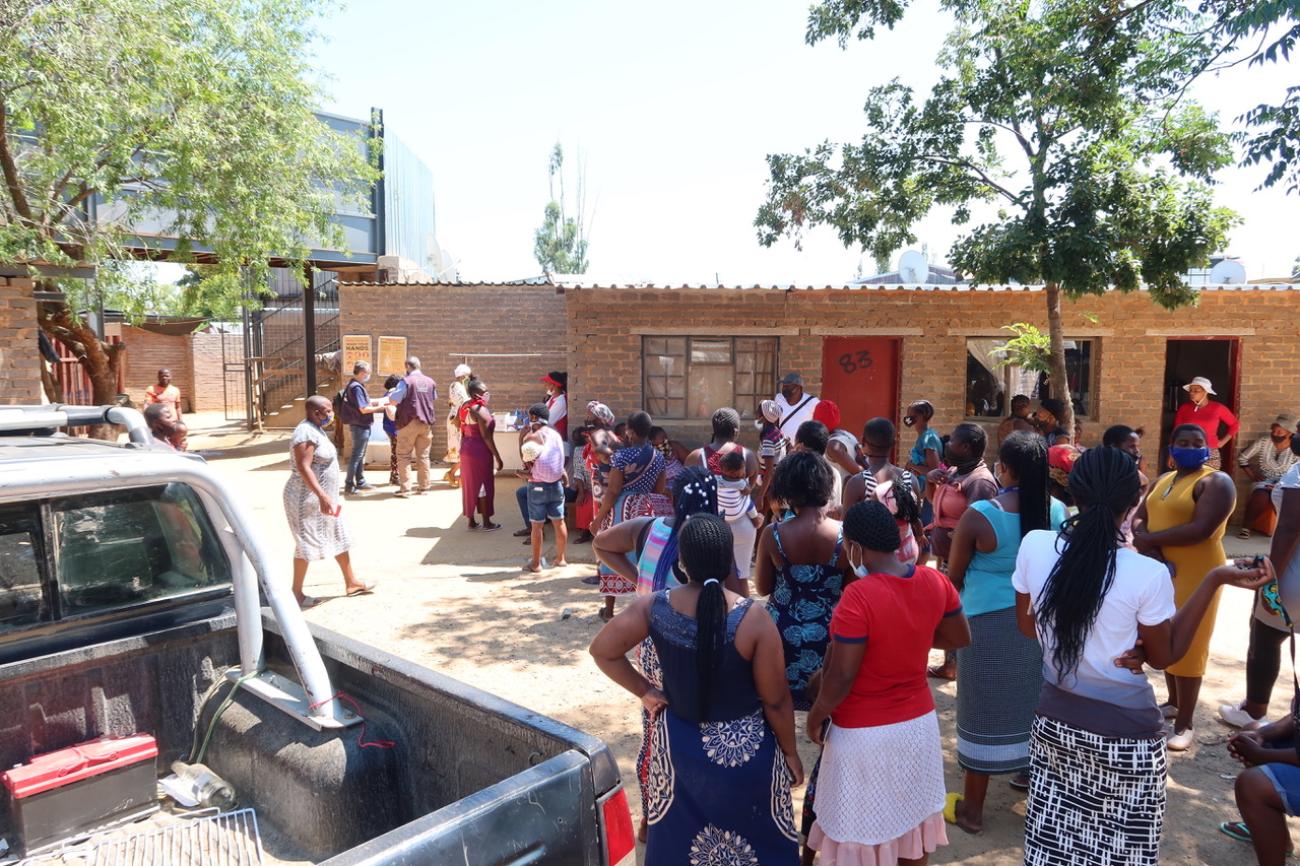“I’ve lost my job. I gave birth. It’s been difficult as the child has disabilities too,” the words of despondent mother of two, Rebecca Bolona, 38, as she speaks to us in a small room upstairs of the Vitolina Centre, what is considered a busy “town” area in WierdaPark, Centurion, just outside South Africa’s capital, Pretoria.
The baby’s blanket absorbs her tears as she recounts the impact that the Covid-19-imposed lockdown has had on her and her family over the past year. She and a number of migrants, mostly women with children, are gathered at the Vitolina Centre to receive food vouchers from the International Organization of Migration (IOM). The organization, along with other UN agencies in South Africa, has been distributing food vouchers to vulnerable populations throughout the pandemic.
The women share similar anecdotes of life prior to the lockdown. Many were employed in the hospitality industry, some in restaurants, some at hotels but all saw the end to their livelihoods when the Government imposed a hard lockdown to curb the spread of the virus. In many cases, the loss of livelihoods was not limited to just theirs, but also their partners, leaving them penniless and at times, homeless too.
“We have no money, my son was at university and he cannot go back because of outstanding fees,” recounts 56 year-old, Jeanine Capiamba. The hospitality industry, they say, is not functioning at full capacity. According to many of the women, the travel restrictions have caused a near shutdown to the tourism industry. They add that because fears remain around the spread of the virus, local tourism has also been slow to pick up.
“Tourists are not coming, so there are no jobs for us to go back to,” echoes 37 year-old Berth Bolela, a migrant from the Democratic Republic of the Congo. Going back home to their country of origin is not an option as the women say they cannot afford a Covid-19 test at the border, which in many cases has become a mandatory requirement. They say, they have followed the situation in Zimbabwe during the Christmas period, and they fear they will be stuck at the border too, should they decide to leave South Africa.
For now, the vouchers provide a glimmer of hope for survival. “The vouchers help us because I can at least go and buy milk and other groceries for my family. As long as the children are fed, I am happy.”







